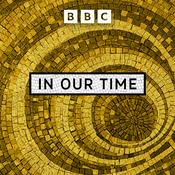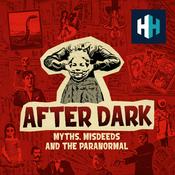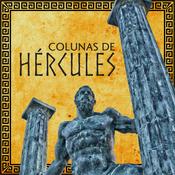Episódios Disponíveis
5 de 9
- Part 8: ResurrectionWhoever believes in him shall not perish Learn more about your ad choices. Visit megaphone.fm/adchoices--------47:54
- Part 7: CovenantA settlement in ashes Learn more about your ad choices. Visit megaphone.fm/adchoices--------39:26
- Part 6: KingdomOn Palm Sunday, Black D.C. wakes up to a broken dream Learn more about your ad choices. Visit megaphone.fm/adchoices--------39:21
- Part 5: ProphecyLeaders hope to stop that which had been foretold Learn more about your ad choices. Visit megaphone.fm/adchoices--------38:49
- Part 4: OvercomeIn Memphis, the Movement faces a reckoning Additional reading: The 4ooth: From Slavery to Hip Hop by John Burl Smith Learn more about your ad choices. Visit megaphone.fm/adchoices--------50:10
Mais podcasts de História
Podcasts em tendência em História
Sobre Holy Week
The story of Dr. Martin Luther King Jr.’s assassination on April 4, 1968, is often recounted as a conclusion to a powerful era of civil rights in America, but how did this hero’s murder come to be the stitching used to tie together a narrative of victory? The week that followed his killing was one of the most fiery, disruptive, and revolutionary, and is nearly forgotten. Over the course of eight episodes, Holy Week brings forward the stories of the activists who turned heartbreak into action, families scorched by chaos, and politicians who worked to contain the grief. Seven days diverted the course of a social revolution and set the stage for modern clashes over voting rights, redlining, critical race theory, and the role of racial unrest in today’s post–George Floyd reckoning.
Site de podcastOuça Holy Week, BBC Lê e muitos outros podcasts de todo o mundo com o aplicativo o radio.net

Obtenha o aplicativo gratuito radio.net
- Guardar rádios e podcasts favoritos
- Transmissão via Wi-Fi ou Bluetooth
- Carplay & Android Audo compatìvel
- E ainda mais funções
Obtenha o aplicativo gratuito radio.net
- Guardar rádios e podcasts favoritos
- Transmissão via Wi-Fi ou Bluetooth
- Carplay & Android Audo compatìvel
- E ainda mais funções


Holy Week
Leia o código,
baixe o aplicativo,
ouça.
baixe o aplicativo,
ouça.




































